Join the FGM/C Prevention and Response in Washington State Advisory Committee

Sahiyo U.S. is pleased to announce that in collaboration with Mother Africa, the U.S. End FGM/C Network, and the Washington State Department of Health, we are seeking dedicated individuals to serve on an Advisory Committee for a Washington state-supported initiative aimed at preventing and responding to female genital mutilation/cutting (FGM/C). This initiative,part of the implementation of Washington state law – SSB 5453, Section 6, aims to enhance statewide efforts to support FGM/C survivors and prevent future cases through strategic planning, community engagement, and education. Apply here! Advisory Committee members will be given a unique opportunity to contribute to a significant public health and human rights effort. Members will play a critical role in shaping effective responses to FGM/C throughout the state. Advisory Committee Members will also participate in specialized subwork committees focused on areas such as community prevention and education, healthcare provider training, government agency response coordination, and/or other topics as agreed upon by the initial Advisory Committee. Advisory Committee Role Description Project Time Frame: April 2024 to June 2025 Location: Washington State (Hybrid – Remote and In-Person Meetings as Required) Time Commitment: 3-5 hours a month Honorarium: $75 per hour The initiative seeks to include perspectives from a wide range of professional backgrounds, personal experiences, and viewpoints, fostering inclusive and responsive strategies. We are interested in engaging those directly impacted by FGM/C, including survivors and individuals from practicing communities and other allies in this work, including related social justice fields such as reproductive health, child protection professionals, LGBTQI+ agencies. We also acknowledge the need for and vital role that faith leaders, men, and other community members play in the work to end FGM/C and invite all these various communities to apply to be a part of the Advisory Committee.. To ensure the effectiveness and diversity of the advisory committee dedicated to the prevention of and response to FGM/C in Washington state, applicants should: Understand the experience of survivors and/or willing to learn and engage with learning more on the topic Be committed to raising awareness about the harmsof FGM/C Value community and collaboration Respect the differences between various cultures If you have questions contact info@wafgmc.org. Apply here! *The Advisory Committee and related project in Washington State is funded by the Washington State Department of Health* If you missed our in-person meeting on April 23rd, join us on Wednesday, May 8th 12:30 to 1:30 pm PST / 3:30 to 4:30 pm EST for a virtual meeting to learn more about how Washington State plans to address the issue of female genital mutilation/cutting following the passage of State Senate Bill 5453- An Act Relative to Female Genital Mutilation/Cutting (FGM/C) in April 2023. Registration link: https://bit.ly/WAFGMCMay8 Or scan the QR code (below) Additionally, to stay engaged and continue learning about FGM/C, join Sahiyo U.S. and the US End FGM/C Network for our upcoming training session on FGM/C on May 23, 2024, 10:30 AM-12:00 PM Pacific Register at: https://bit.ly/May23FGMCTraining Or scan the QR code (below) For more information about the project or any additional questions, please contact info@wafgmc.org.
Jo Keogh reflects on the 2023 Women Deliver Conference
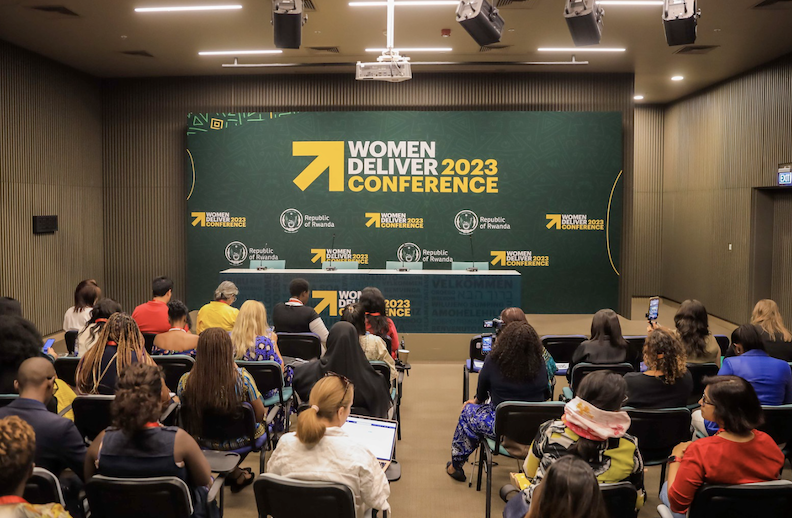
The Women Deliver 2023 Conference (WD 2023) took place in-person, as well as virtually, from 17-20 July 2023, in Kigali, Rwanda. The conference convened around 6,000 people in Kigali, and over 200,000 people online. Amongst those attending the conference was Jo Keogh, Sahiyo U.S. Advisory Board member as well as a founding member of the Connecticut Coalition to End FGM/C. She reflects on her experience in Kigali: Many things impressed me about Rwanda: the beauty of the land, the warmth and hospitality of the people, and, of course, the exciting experience of attending the Women Deliver Conference. Being in the presence of people committed to ending FGM/C from all over the globe was both moving and encouraging. Especially profound was hearing stories from frontline workers who have made ending this harmful practice their personal mission. Our own Mariya Taher is among them. I knew before traveling to the conference that Mariya is well-known here in the States for her tireless work around ending FGM/C. What I didn’t realize is that she is recognized and respected internationally for that work. Representatives from organizations fighting FGM/C all over the world knew who Mariya was. When I told people at the conference that I was with Sahiyo, their eyes would light up. It was remarkable to witness. I am so grateful to have had the opportunity to attend the Women Deliver conference and to understand the impact that Sahiyo has had the world over. The more I learn about Mariya, the more I admire who she is and all that she has accomplished. Learn more about the 2023 WD Conference.
Sahiyo welcomes Kaneez Madraswalla as new U.S. Advisory Board Member
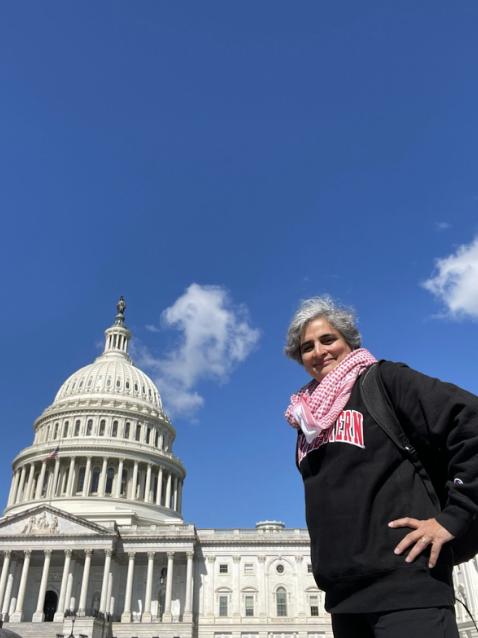
Sahiyo is eager to welcome Kaneez Madraswalla as our newest U.S. Advisory Board Member. A resident of New Jersey, Kaneez Madraswalla is a trained lawyer and Vice-President of Compliance at QBE North America, based in New York City She co-leads the QBE Women’s Initiative Network, facilitating illuminating employee engagement events. Her other volunteering activities have included counseling survivors of domestic violence, refugee assistance, and grassroots political awareness. Though she was not exposed to female genital cutting (FGC) as a child, Kaneez is an aspiring feminist and Bohra woman raised by a strong mother and enlightened father; she is a strong supporter of Sahiyo and is determined to see the end of FGC in the Bohra community and beyond.
Sahiyo spotlight: Incoming U.S. Advisory Board Chair Zehra Patwa
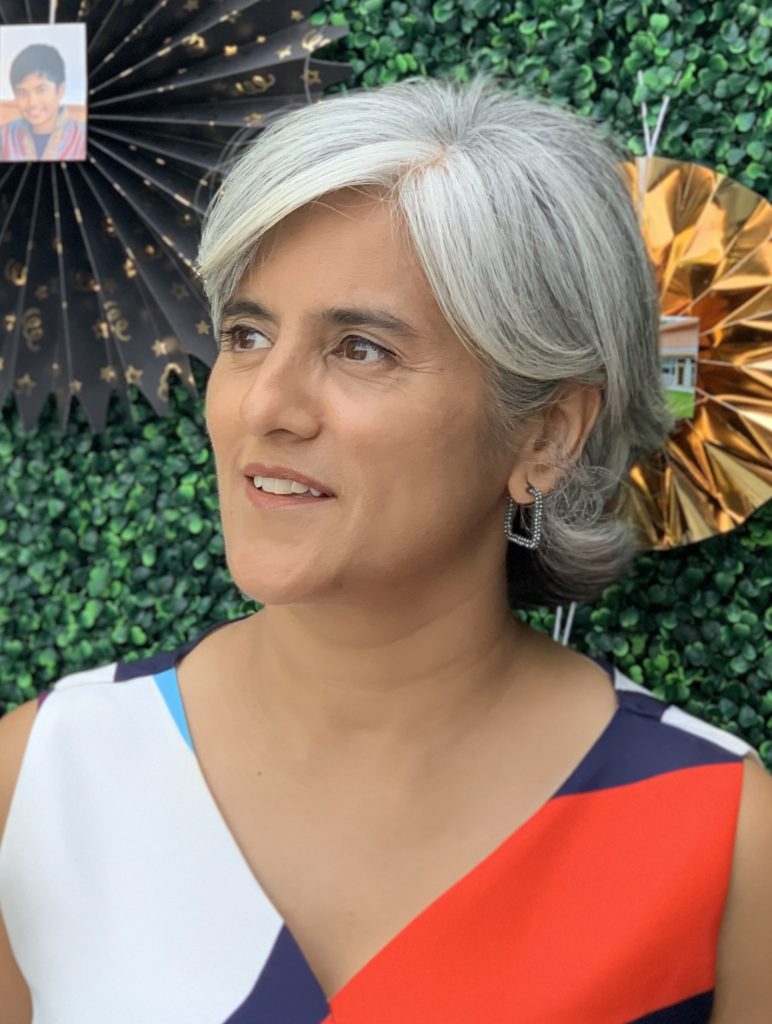
Zehra Patwa, Sahiyo U.S. Advisory Board Chair, is the Co-Founder and U.S. Lead of WeSpeakOut, an organization that strives to work for equal rights for Bohra women in all spheres of life, specifically, on Female Genital Mutilation/Cutting (FGM/C) or khafz. She grew up in London and was educated at the University of Bradford Management Centre in the UK and the Université de Montpellier in France. She serves on several boards, including Integrated Refugee and Immigrant Services (IRIS), and currently serves as Vice-Chair of the Sahiyo US Advisory Board. After discovering well into adulthood, that khatna or khafz (type 1 FGM/C) was practiced in her community and that she, too, had been subjected to it, she decided she could no longer keep silent. Although she has no recollection of the practice being done to her, she is vehemently opposed to it and has been working with WeSpeakOut to expose the practice within, and outside, the community. Zehra is passionate about a lot of things including food and family (not necessarily in that order!) and bringing about an anti-FGM/C law in Connecticut. She currently works in Digital Customer Delivery for the Knights of Columbus in New Haven, Connecticut. How did you first get involved with Sahiyo? Back in 2015, I was invited to join a Whatsapp group of women around the world who were starting to talk about khatna, or female genital cutting/mutilation (FGM/C), in the Bohra community. This mighty group of women included the founders of Sahiyo. I had recently learned that khatna was happening in my community and had also learned that I had been cut as a 7-year-old girl. I was still working on accepting that my community perpetrated this harmful traditional practice, but hearing what other women had experienced further reinforced the impact of this practice and spurred me to speak out publicly about khatna. Since then I have been connected to Sahiyo in various ways, as a partner with WeSpeakOut, a retreat organizer, a volunteer, as Vice Chair, and now, as Chair of the Advisory Board. What are some goals (both short term and long term) that you aim to work towards? My short term goal is to encourage participation in the Activists Retreats. With the recent federal grant we’ve received, Sahiyo can provide a retreat experience to survivors from other Asian communities beyond the Bohra community. My long term goal is to help the organization on its path to sustainability. This includes setting Sahiyo on its way to becoming an independent charitable organization, a 501(c)(3), as well as helping the organizational structure grow so that Sahiyo can leverage its vast institutional knowledge to promote social change. What are you most looking forward to in this new role? I’m thrilled to be in the role that I have been adjacent to for so long as Vice-Chair, because I can bring my previous Board experience and knowledge of Sahiyo to help the organization grow. Working alongside Sakina Sharp, our new Vice Chair of the Advisory Board, will also be fascinating; she has a deep understanding of the domestic violence sphere with her non-profit work. As the Co-founder of WeSpeakOut and as a longtime resident of Connecticut, what are some insights you can share with us on the different lenses through which you have viewed FGM/C? Interestingly, it was almost easier to speak about FGM/C within my community, as it was such a well known, albeit underground, practice that was already understood. As an advocate for an anti-FGM/C law in Connecticut, I have had to explain the nuances surrounding cutting and the motivations of parents who have their daughters cut. People outside cutting communities are usually horrified to hear about this practice, understandably, so I am trying to help people appreciate that it is a sometimes subtle practice that some women claim has had no impact on their lives. However, so many of us carry the trauma of what was done to us deep within ourselves and Sahiyo provides avenues to share these experiences and impacts in a sensitive and supportive forum where healing and activism work together. What, according to you, is the most urgent calling that needs to be supported in order to bring an end to this practice? Having anti-FGM/C state laws is crucial to encouraging an end to this practice. Sharing stories is an incredibly impactful way to bring about this social change, and Sahiyo has used its Voices to End FGM/C program to change minds so that future generations of girls are spared from harm.
Sahiyo spotlight: Incoming U.S. Advisory Board Vice Chair Sakina Sharp
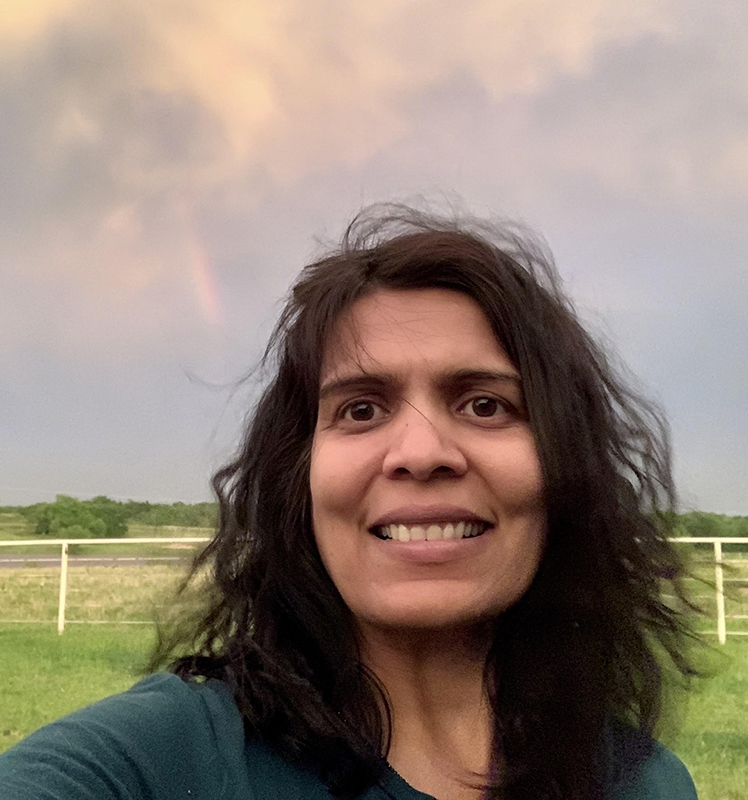
Sakina Sharp has advocated against gender-based violence for over two decades. In 2011, she co-founded Awaaz, a 501(c)(3) non-profit organization to help survivors of domestic violence. She led it in an executive leadership and board capacity for 7 years. Sakina is a legal and compliance executive with 20+ years of experience in insurance regulatory and privacy law, advising large financial services organizations. She received her J.D. from Brooklyn Law School and her B.A. from New York University. Sakina is proud to be a girl mom. When did you first become involved with Sahiyo? I first became involved with Sahiyo in 2018. I was trying to find information on female genital cutting (FGC) in the Bohra community, and I found Sahiyo. I checked Sahiyo’s Facebook page and could not believe that such a community existed; I was so happy. I called Mariya Taher within a few weeks and asked her about how I could be involved. Now, here I am. In your new role as Vice Chair of Sahiyo’s Advisory Board, what are some goals, both short-term and long-term, that you are aiming to work towards? My goals for Sahiyo remain what they were when I started with Sahiyo: to get the awareness of female genital cutting (FGC) out, and to allow space for other survivors of FGC to tell their stories. Storytelling is very powerful– that’s what drew me to the work that Sahiyo does. That’s what makes Sahiyo a unique and compelling nonprofit, and I would like to focus more on that this year. What are you most looking forward to? One of the things I’m most looking forward to is learning more about the inner workings of Sahiyo. As an Advisory Board member, we get a glimpse into what Sahiyo does, but are not fully engaged with its work on a day-to-day basis. As a small nonprofit, I think Sahiyo has done tremendous work in such a short amount of time under Mariya’s leadership, and I want to see how that is done through a closer lens. As a lawyer, can you provide us with some insights into the legal realm of FGC that you have developed over the course of your career? So, I struggle with the role of law in FGC, and I find myself in an interesting position. The reason I say this is because prior to getting involved with the work to prevent FGC, I did a lot of work with domestic violence (DV) prevention. Part of the reason I became a lawyer was because I thought that the law would do a lot for minimizing the prevalence of domestic violence. I found that the impact of law was not, I guess, that impactful for DV. And that’s why I struggle with it for FGC. I think it’s important for us to have laws that ban the practice; it’s important for us to have laws that define FGC to include khatna. I think those are very important table stakes to set the standard in our community of what’s acceptable and what’s not acceptable. I think it’s also important for the Bohra community, the community I belong to, because the belief in the community is that the law of the land is what the people of the community need to go by. So if the law of the land is, you can’t do this, then by default, the religion is saying, you can’t do this. Now, how impactful that is in practice, I don’t know. As a survivor, I feel like storytelling is more impactful, because it reaches people more deeply. It communicates to people how prevalent FGC is, how it has impacted people who have either undergone it, or those who know people who have undergone it, or those who have promoted the practice. What, according to you, is the most urgent calling that needs to be supported in order to reach our goal of ending this practice? Recently I read something that Sahiyo had put out in their Annual Report about critical mass: if there are more voices, if there are enough people in a community who say no, this practice cannot happen. Then only real change can be achieved. Getting enough people to understand it, getting enough people to talk about it, and getting enough resources and education out there, is what I think is going to get us to a critical mass. That is what I want to work toward with Sahiyo.
Sahiyo spotlight: Outgoing U.S. Advisory Board Chair Arefa Cassoobhoy
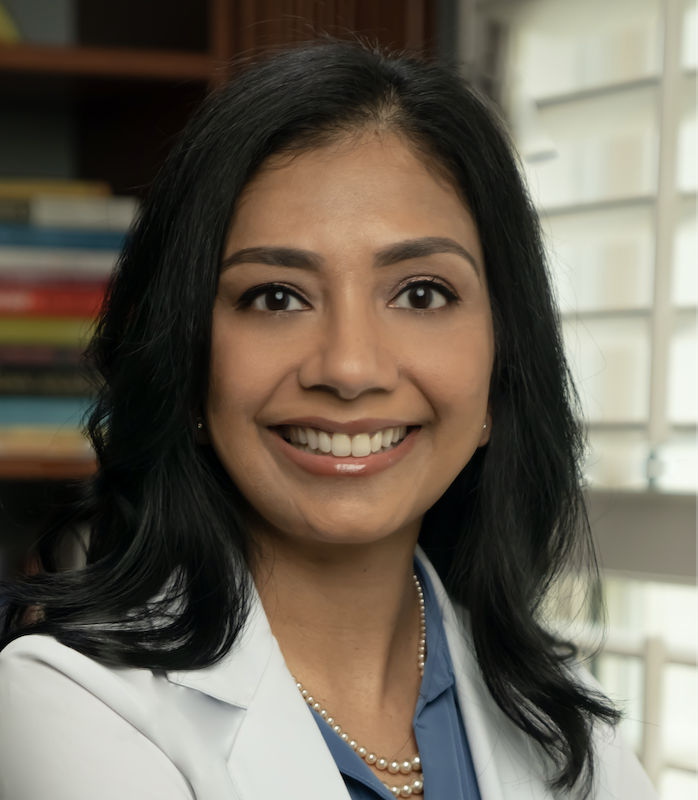
Arefa Cassoobhoy is a board certified internal medicine physician with expertise in digital health communications. She is committed to raising awareness of topics like female genital cutting and is honored to have served as chair of the Sahiyo U.S. advisory board from 2021-2023. An advocate for health equity and health literacy, she treats patients and is on the board of directors at the nonprofit Clarkston Community Health Center in Georgia. She is also on the Emory School of Medicine alumni board. She is the former chief medical editor at Everyday Health and was a senior medical director at WebMD and senior medical correspondent at Medscape. When did you first become involved with Sahiyo? In 2018 I was researching female genital cutting (FGC) for an article on WebMD when I came across Sahiyo’s media toolkit. It was so well done – helpful and thorough without sensationalizing the topic – that I reached out to Mariya Taher, a cofounder of Sahiyo, to learn more about the nuances of FGC in the U.S. and globally. With her input, I went on to produce a video educating clinicians for Medscape.com in 2019 and started the process for a continuing medical education activity at Medscape.org produced in 2020. From there, my involvement with Sahiyo grew easily, because we share the same mission of educating and empowering individuals to make choices for their body themselves. I worked more with Mariya at conferences, online events, and joined the Sahiyo U.S. Advisory Board, eventually becoming the Chair. How do you think your background in internal medicine lends itself to Sahiyo’s mission to end female genital cutting (FGC)? People who experience FGC may need assistance from a variety of specialists, whether it’s medical and mental health treatment or social and legal assistance. As an internist in the health media space, I’ve been able to support raising awareness about FGC and its consequences with the goal of stopping it from occurring. And I’ve been able to encourage health and medical education for the many groups involved, including survivors, healthcare workers who need the knowledge and skills to appropriately and with empathy treat their patients, and other community members and workers. What does this work mean to you? The work Sahiyo does is special to me because I come from a community that practices FGC and I want that to stop. What were your goals as the Sahiyo U.S. Advisory Board Chair? Do you think they were accomplished? One key goal I had as the Advisory Board Chair was to support a budget increase for the organization; I’m proud to say during my time as Chair that Sahiyo’s yearly budget tripled. It’s been incredible watching the Sahiyo team broaden the scope of grant applications and initiate new fundraising events like the Silent Auction that just finished. With this added revenue they’ve been able to expand their work dramatically. As you transition out of this role, how do you hope to continue supporting Sahiyo? I plan to continue working with Sahiyo as much as I have been. We have a retreat coming up this year I am excited about. More info to come!
Joanna Vergoth chosen as 2021 CRAVE Foundation for Women honoree

We are proud to announce that Sahiyo U.S. Advisory Board Member Joanna Vergoth, LCSW, NCPsyA, was chosen as a 2021 CRAVE Foundation for Women grant recipient. She is a psychotherapist, specializing in trauma and was choosen as a recipient for her committed activism of over 20 years in helping those impacted by Female Genital Cutting (FGC). The CRAVE Foundation for Women was established to support individuals working towards creating a world where pleasure is a universal human right. Read more about Joanna’s work here.
Sahiyo U.S. Advisory Board spotlight: Zahra Qaiyumi
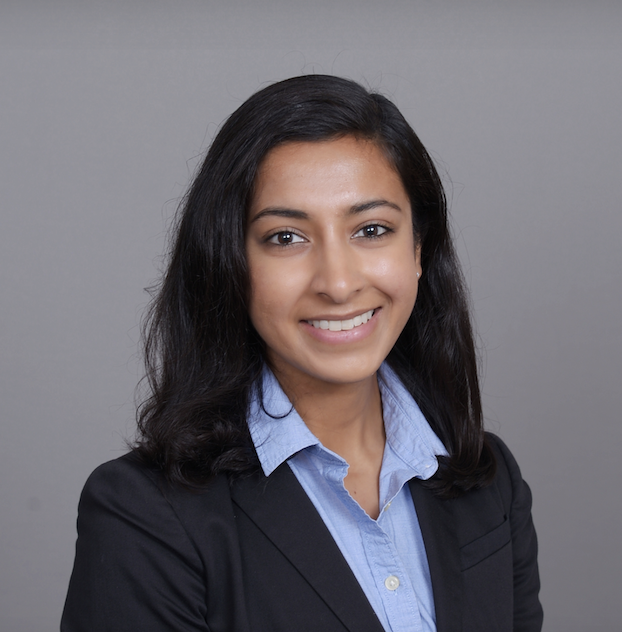
Zahra is a 4th year medical student at Quinnipiac University in Connecticut. She is interested in the role of health care providers in caring for those affected by the practice, and as such is involved with developing training for resident physicians on surgical care that improves quality of life and health outcomes in the most severe forms of FGM/C. She has also designed and implemented curriculum that introduces physicians in training to the cultural nuances surrounding FGM/C with the goal of increasing cultural humility. Zahra has been involved with Sahiyo since 2019, assisting on projects focused on community engagement as a tool to bring an end to FGM/C. When and how did you first get involved with Sahiyo? I have been following Sahiyo’s work as an organization for many years, but decided to get involved in the fall of 2019 during what was a rough patch in my personal life for a few reasons, khatna, or FGM/C, being one of them. Why did you choose to join the Advisory Board and what do you hope to bring to Sahiyo through this new role? I chose to join the Advisory Board to make more meaningful connections with all of the incredible people who work with Sahiyo, and in hopes of supporting projects in the pipeline at Sahiyo. As a member of the Board, I’d like to contribute the expertise I have and will gain as I progress through the next phase of medical training, and look for more ways to incorporate training on FGM/C and survivor support into health professions training. What does your work with Sahiyo involve? As a volunteer, I have written pieces interpreting research on FGM/C, as well as abstracts and posters in order to disseminate Sahiyo’s work to healthcare providers, survivors, social works, and law enforcement, among other groups. I also support The Connecticut Coalition to End FGM/C by giving presentations about the practice to stake holders with the goal of introducing legislation in the state of Connecticut that addresses FGM/C. Additionally, I have created and implemented a curriculum that introduces medical students to the cultural nuances surrounding the practice, and am involved in creating a provider training for family medicine and obstetrics and gynecology resident physicians. How has your involvement with Sahiyo impacted your life? As someone who grew up in a community where FGC was the norm, my involvement with Sahiyo has been an integral part to self-actualization and healing. I joined Sahiyo at a time where I desperately needed allies who understood my personal struggles with FGC. Since joining, I have been able to use my personal experiences and integrate them with work that will positively impact my career as a healthcare professional. What words of wisdom would you like to share with others who may be interested in supporting Sahiyo and the movement against FGC? Sahiyo has taught me that joining a community of peers that are just like you, that have been impacted by the same circumstances you have, can be healing in so many ways. Using experiences that are deeply personal to you in order to make change in the world, no matter how small, is liberating. I encourage anyone who is looking to feel such liberation to support Sahiyo in their goal to end FGC.
Sahiyo U.S. Advisory Board spotlight: Nesha Abiraj
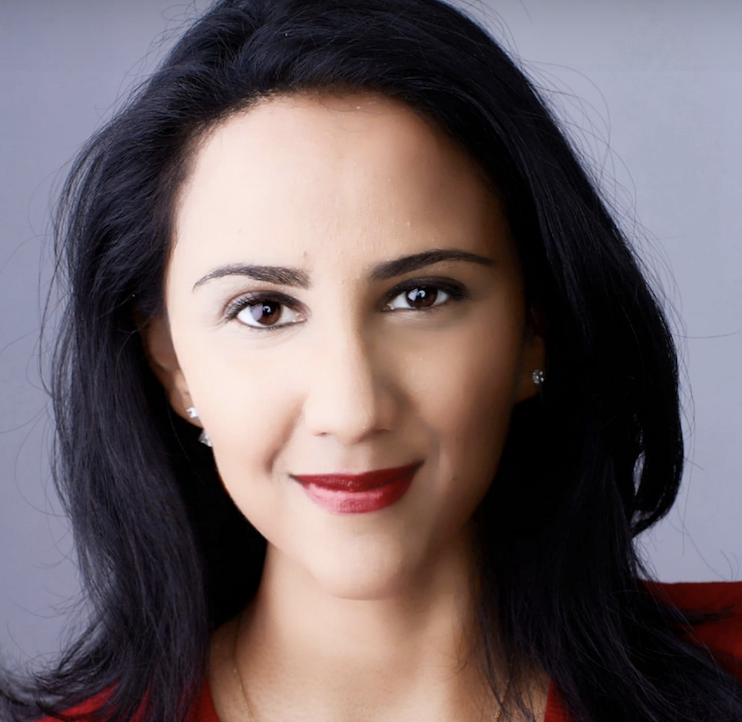
Nesha Abiraj is an International Human Rights Lawyer. She is currently a contracted Senior Specialist in Advocacy and Policy, Humanitarian Affairs, with Save the Children International in Washington, DC. She also serves as an Advocacy Lead for UNICEF USA UNITE. Nesha has worked on global human rights policies related to the rights of women and children and global health and human rights. Notably, she worked on infectious diseases law and policy in India, China, and the United States. She has also done over a decade of humanitarian service in the aftermath of natural disasters and recently in the wake of the Covid-19 pandemic in the Caribbean and the United States with local and international NGOs including the Red Cross. Can you tell us a bit about your background? I pursued my law degree with the University of London and did the Solicitor’s Bar with Staffordshire University, in the UK. I was admitted to practice as a Barrister in Trinidad and Tobago on June 18th, 2009. In 2016, following the media coverage of the chemical attacks in Syria led me to a course on refugees and asylum seekers, created by Amnesty International, which changed my life. After successful completion of the course, I knew I had to go even further if I truly wanted to make a difference. This led me to taking a huge leap. I had my own successful private legal practice, which I worked for 8 years to build, and yet I was ready to give it all up to pursue what felt like a higher purpose for me. I applied and was accepted to Northwestern University where I successfully completed my Masters of Law in International Human Rights. I became the first person originally from Trinidad & Tobago to be accepted into that program. It also led to me becoming the first person from Trinidad & Tobago to be awarded the Schuette fellowship in Global Health and Human Rights, which I pursued and completed with the Women’s Rights Division at Human Rights Watch. My work during the fellowship also led to me becoming the first researcher at Human Rights Watch to be awarded the Citation of the Commonwealth of Massachusetts for my tireless work to protect the children of the Commonwealth from early, forced, and child marriages. When did you first get involved with Sahiyo and what opportunities have you been involved in? I first became involved with Sahiyo in 2018. During my fellowship I was tasked with working to end early, forced, and child marriage in the US state of Massachusetts. Part of that work involved understanding the linkages and driving forces behind child marriage, one of which included female genital cutting (FGC). To that end, I decided to reach out to an advocate in Massachusetts to determine whether this practice was linked in any way to early, forced and child marriages in the US. In that meeting, I had no idea I was about to be introduced to someone who had been subjected to the practice as a child. In that moment, the gravity of FGC and the risk posed to millions of girls like her felt so much more real, and I knew I had to do something about it. National outrage had also sparked following a Michigan court’s ruling, acquitting a doctor who had performed FGC on a child. If I had left that conversation and did nothing, knowing the risk millions of children, especially girls, face, and knowing that the law was not even on the side of survivors or those at risk, then I would be betraying my own sense of justice/morality. I continued to educate myself about FGC and did as much as I could with the platform I had to amplify survivor voices and the growing call to ban the practice. I attended most if not all of Sahiyo’s webinars. I also enrolled and successfully completed a women’s health and human rights course created by Stanford University, which included FGC. In 2020 I went on to participate in the Voice’s project and was most recently appointed to the US Advisory Board. How has your involvement impacted your life? I gained a family of “sahiyos” or “sisters” relentlessly pursuing a far better world for children everywhere, through the elimination of this internationally recognized human rights abuse, which harms women and girls and can result in death. Anything I do with Sahiyo brings both meaning and fulfillment to my life and I am exceptionally grateful to be a part of this family. What pieces of wisdom would you share with new volunteers or community members who are interested in supporting Sahiyo? Oftentimes, we think we need to do really big things which attract recognition to create an impact, but the biggest impact you will make in this life really comes from the things that are often not reported on or written about. I never asked for any of the things that were awarded to me nor did I ever ask to be the first of anything. Everything I have ever done in my life was honestly because I refused to be a bystander in the face of injustice and I cared enough to do something about it. In 2018, on a field research trip focused on infectious diseases law and policy in India, I had a focused group discussion with a group of women in India who were survivors of tuberculosis. While I can speak some Hindi and I do understand it, for these purposes a translator was needed. These women shared the shame, the stigma and discrimination they experienced by their families on account of their diagnosis, ranging from being denied access to their children and being treated as outcasts in their own homes, to being sent back to their families by their in-laws, who in some cases did not want them. At the end of the discussion, even through the language barrier, I went to thank these women for their courage and willingness to share their experiences, and
Sahiyo U.S. Advisory Board spotlight: Jo Keogh
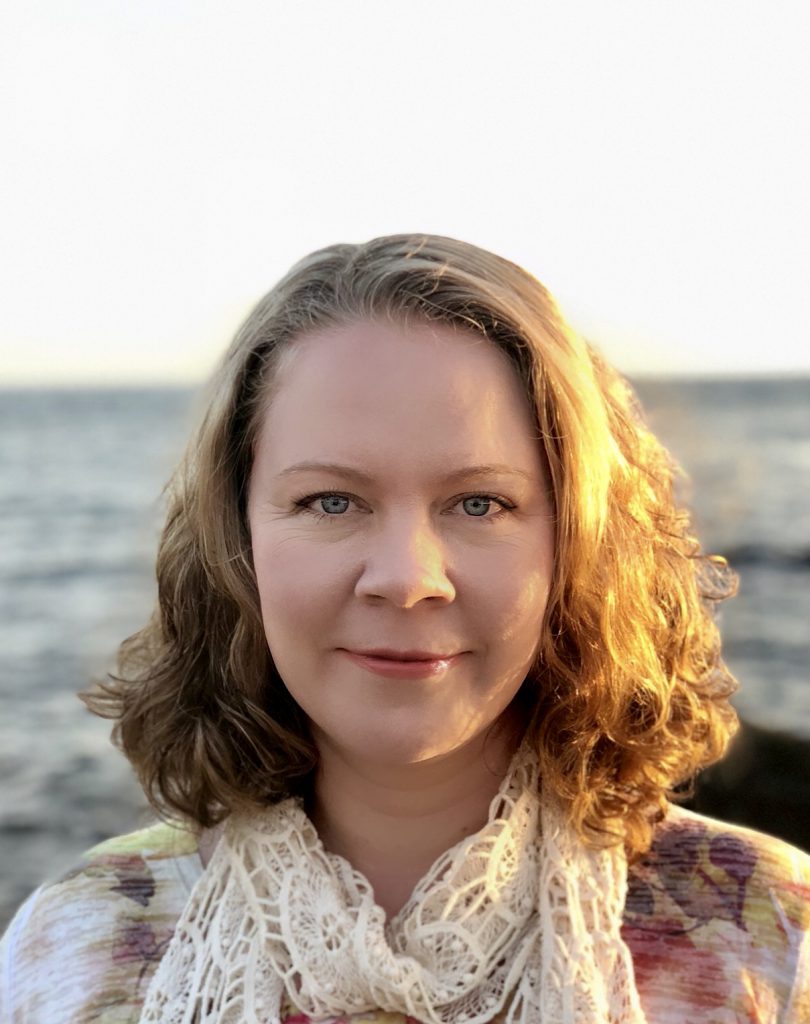
Jo Keogh has been utilizing somatic approaches to treat female trauma survivors since 2014. She is currently completing her internship in Clinical Mental Health Counseling at Anna Haven Behavioral Health services, where she specializes in treating adult survivors of child sexual abuse, sexual assault, rape, and domestic violence. Jo’s primary interests include working toward intersectional equity in women’s mental health treatment and evaluating the ways in which individual experiences with trauma and attachment affect societal functioning. Jo is a founding member of both the CT Coalition to End FGM/C and the Guilford Human Rights Commission. She is also a member of Connecticut’s Shoreline Domestic Violence and Sexual Assault Taskforce, the Connecticut Counseling Association’s Public Policy and Legislative Committee, and the Connecticut-based Trauma and Gender Learning Collaborative. Can you tell us a bit about your background? I am a mental health professional who specializes in treating women’s trauma. My areas of expertise include sexual assault, rape, child sexual abuse, and domestic violence. I strongly believe that trauma is best addressed through a two-pronged approach of providing individual treatment and addressing systemic and intersectional inequity. When did you first get involved with Sahiyo and what opportunities have you been involved in? I first became aware of Sahiyo in 2020, when I reached out to Mariya Taher for help with criminalizing FGM/C in Connecticut. I was immediately impressed with her ability to raise awareness around this critically important – and often ignored – issue. The resources and experience that Sahiyo has been able to bring to the table have been gamechangers: the Voices videos have been a particularly potent way to connect the abstract idea of what FGM/C is with the reality of survivor stories. How has your involvement impacted your life? Working to find holistic solutions to ending FGM/C has been an incredibly rewarding journey for me. The women dedicated to irradicating this practice are each powerful role models in their own right: intelligent, courageous, warm, and supportive. Working with the women of Sahiyo has helped me to understand the kind of person I want to be in the world. What pieces of wisdom would you share with new volunteers or community members who are interested in supporting Sahiyo? Many people are passionate about a variety of issues that impact women’s equality, from reproductive health to domestic violence. Yet FGM/C tends to be left out these conversations. To me, advocating for women means becoming educated around all of the ways that women are harmed, and then doing whatever we can to prevent those harms from occurring. Sahiyo is doing meaningful, survivor-led work around FGM/C, and is changing the lives of women and girls all over the world. Come join us!
